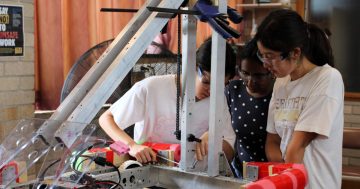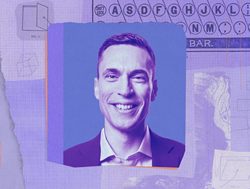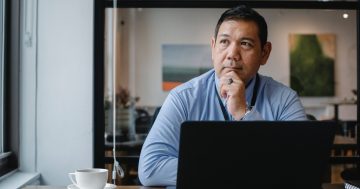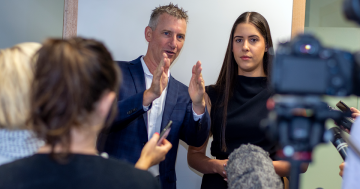While the world is full of experts who believe they know what will happen in 2023 and beyond, Michelle Gibbings* believes it is impossible to predict the future — but you can prepare yourself for it.
 The world is awash with predictions, forecasts and expectations about the stock market, economy, politics, world affairs and society (to name a few).
The world is awash with predictions, forecasts and expectations about the stock market, economy, politics, world affairs and society (to name a few).
For example, Forrester’s research suggests that automation will strip out approximately 1.5 million jobs from the Australian economy.
The World Economic Forum’s Future of Jobs 2020 report concluded that technology-driven job creation would outpace job destruction (over the next five years).
Yet as history has proven many times, it’s hard to predict the future. At one point, cars and electricity were considered a fad.
Predictions about the stock market, economy, and community trends have frequently been spectacularly wrong.
Our brain craves certainty. It wants to know what to do.
Consequently, clinging to predictions and believing we know what will happen in the future (and even control the future) provides comfort.
Yet, all predictions are based on perspectives, models and often bias, which means they may be unhelpful and even misleading.
The only sure thing is that change is inevitable and humans are, as researcher Dan Ariely says “predictably irrational”.
His book, of the same title, explains how we believe we make decisions rationally when in fact they are driven by assumptions, heuristics and past experience.
Much of our decision-making is based on emotions we can’t quite explain. And feelings can arise when they aren’t expected.
As a perfect example, upon hearing the news of the death of Queen Elizabeth II, I was immediately sad — to be frank, almost weepy.
This reaction surprised me, and if someone had said to me the day before that I would react this way emotionally, I would have scoffed.
I couldn’t predict my emotional reaction. It was a reaction, not a response because it was immediate and without conscious processing.
We react to so many things around us. There are signs and interactions that we react to and signals we need to tune into to help us better understand ourselves, others and society.
In 2009, Paul Shoemaker and George Day, writing for MIT Sloan Management Review, highlighted the criticality of making sense of weak signals.
It’s not about predicting the future; it’s about improving the ability to understand what could happen by improving peripheral vision, elevating self-awareness and minimising bias.
They define a weak signal as follows:
“A seemingly random or disconnected piece of information that at first appears to be background noise, but can be recognised as part of a significant pattern by viewing it through a different frame or connecting it with other pieces of information.”
Shoemaker and Day outline three phases: Scanning, sense-making, and probing and acting.
In the first phase, you actively surface any weak signals by tapping into information sources, expanding your network and seeking out data.
In the second phase, you test hypotheses, canvass wisdom from a range of people and develop diverse scenarios. Diversity of thought and participation is crucial.
In the third phase, you probe further and clarify what could happen. In this phase, you confront the reality of the situation and encourage constructive dialogue.
For all of this to happen, you need space to reflect and think, and time to generate insights and make sense of what is happening.
Finding that time doesn’t happen by accident. It takes deliberate planning and conscious thought.
It’s recognising the value that stems from what can appear like ‘doing nothing’ on the outside.
You also need to be willing to challenge yourself and the assumptions that underpin how you think and decide.
You can’t predict the future. However, you can plan for it.
Essential to planning is the willingness to be flexible, resilient and adaptable, so you and your workforce are best prepared for whatever comes next, even when that future is unpredictable.
*Michelle Gibbings is a Melbourne-based change leadership and career expert and founder of Change Meridian. She can be contacted at [email protected].
This article first appeared atwww.changemeridian.com.au












